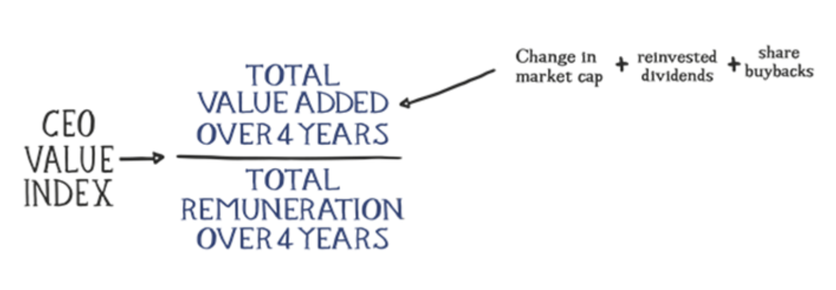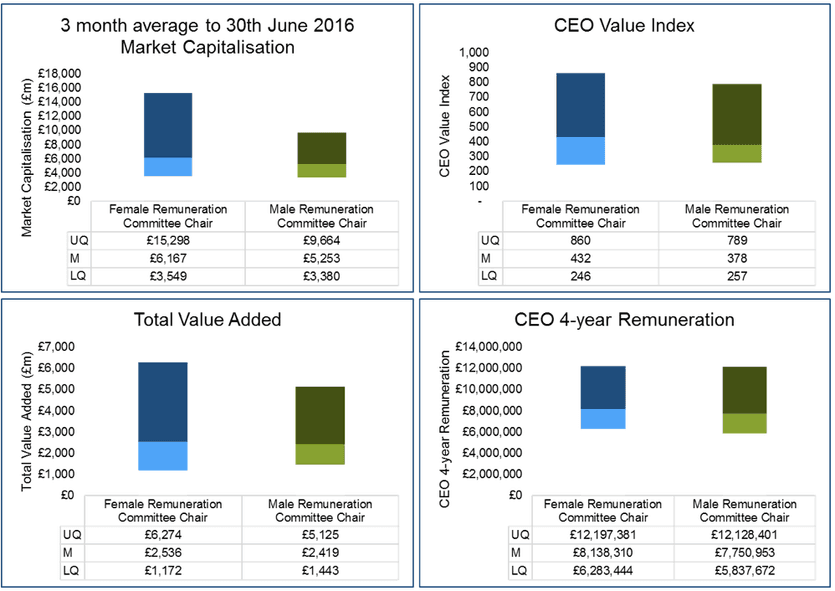Rise in Number of Female Remuneration Committee Chairs is a Small Success
According to former UK Trade Minister Lord Davies, who wrote The Davies Review “Improving the Gender Balance on British Boards”, 12 percent of board members amongst FTSE 100 companies in 2011 were women. By 2016 that figure had risen to 30 percent. That’s a growth of more than two and a half times in five years.
Since 50 percent of the world’s working age women are in work, and this has been the case since 1991, there is still some way to go.
This article assumes that men and women will be equally represented soon, which is important because in our chosen area of expertise, women are already making a huge contribution.
We looked at the top 150 FTSE-listed companies and collected data on 127. (We excluded trust funds and those companies listed for less than four years.) Of those 127 companies, 52 have female remuneration committee chairs (41 percent) and 75 have male remuneration committee chairs (59 percent).
These are somewhat astonishing figures when one considers that in the FTSE 100 only two percent of board chairs and seven percent of CEOs are female.
Controversial Quotas
There is some controversy about the increasing frequency of women invited to join boards. Helena Morrissey, investment chief executive and co-founder of the 30% Club once said, “A quota with a bias to a specific gender, race, or background is no guarantee to improving board effectiveness and company performance.
“There is no guarantee that women seated around the table will perform better than their male equivalents. We are concerned that imposing quotas would lead to tokenism in the boardroom, creating two-tier boards at the expense of performance, whilst failing to address the issue of how women progress through organisations.”
Rem.n produces a UK CEO Value Index, a simple “rule-of-thumb” we use to guide remuneration decisions. It is a measure of how much value an executive adds to the shareholders for every pound paid in CEO remuneration.
This focus on the value rather than the cost of executives is also an objective measure of the effectiveness of the remuneration committee and by definition, its chair.
The index uses a simple two component methodology:

We used this Value Index to figure out how well female remuneration committee chairs perform. The result is that they are responsible for their companies delivering more value to shareholders for every £1 paid to the CEO than their male counterparts manage to achieve. Clearly, women are having a huge and positive impact here.

This chart shows that women are running the remuneration committees of bigger companies, paying their CEOs more (£8.14m v £7.75m), oversee a greater value added to shareholders (£2.54bn v £2.42bn), and have a better CEO Value Index (median: women £422 v £378 men; UQ £860 v £789).
So, while it’s a step that the gender balance of remuneration committee chairs is levelling out, we need to see a much larger impact at the executive level, so perhaps we need to see a similar turnaround in the nominations committee to encourage female non-executive directors to appoint female executives.
Deborah Gillis, president of Catalyst, a campaigner for improved gender diversity at work, argues that the presence of more women in senior positions helps to break down the “think-leader-think-male” mind-set.
Ms. Gillis points out that women such as Angela Merkel often face “biting” judgments about their gender, experience, likeability, and their appearance, meanwhile men who run for office or rise to lead companies are largely free from such criticism and benefit from long-held advantages in politics, business, and society as a whole.
A critical mass of women at the top should slowly change that. The rise in female remuneration committee chairs can be seen as one small success but much more needs to be done.
As published in First Women
